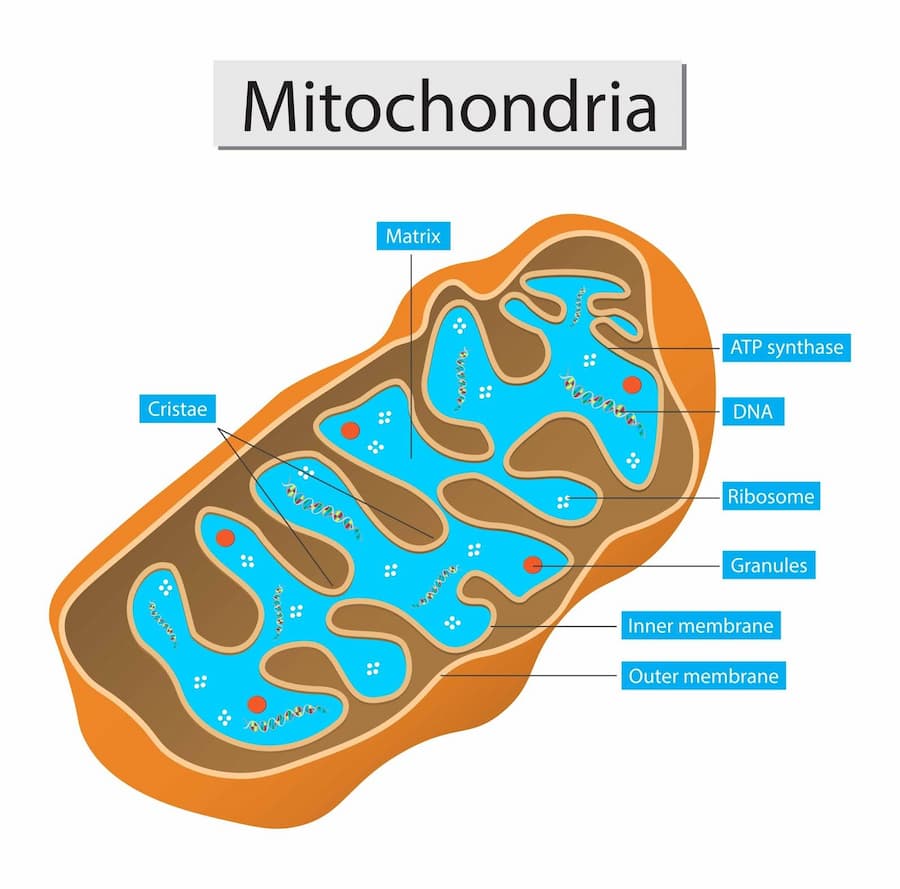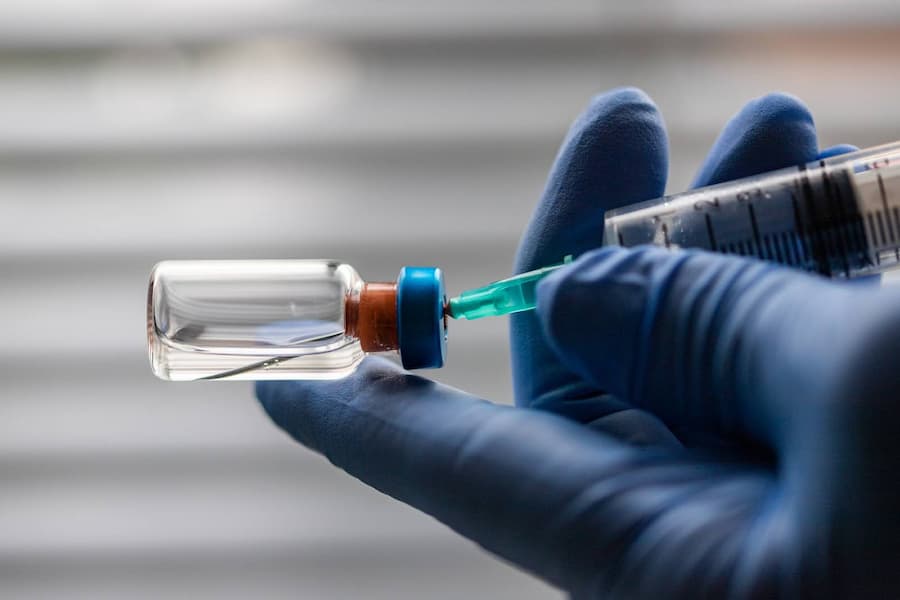Intracellular Metabolism Recovery (IMR) therapy enhances a patient’s condition by providing a personalized nutrient complex, including vitamins, minerals, amino acids, antioxidants, and trace elements. This supports normal cell function and rejuvenates cellular metabolism.
While IMR can be a standalone treatment, the most significant benefit of IMR treatment is its ability to potentiate primary therapies.
That’s why we recommend using it to boost stem cell activity to achieve consistent results in therapy.
To explore other methods that can enhance the results of stem cell treatments, visit this page for more information on additional therapies.
Explore nowThe Science Behind IMR Therapy
Metabolic imbalance is believed to be the root cause of many bodily disorders. Various conditions, toxic drugs, and environmental factors can impair normal metabolic reactions.
Energy for metabolic reactions is produced through cellular respiration, where cells generate ATP molecules—the universal energy source—from food. This process occurs in mitochondria, the cell’s tiny energy centers. Disruption of mitochondria leads to cascading failures in metabolic processes.

IMR therapy targets intracellular structures essential for maintaining cellular metabolism and helps support mitochondria’s functions. It can modify the intake of metabolically active nutrients that the body naturally produces, creating the optimal molecular environment for our cells.
How IMR Therapy Benefits Your Body
IMR therapy is effective because its components work together to reboot intracellular respiration in mitochondria, leading to improved metabolism and increased energy production in cells.
Here’s how this therapy benefits your body.
| Benefit | How it works |
| Improved nutrient delivery | Beneficial vitamins and trace elements are transported more effectively to cells, enhancing cellular metabolism. |
| Detoxification | The therapy promotes the removal of harmful proteins, toxins, and heavy metals and supports effective extracellular cleanup. |
| Free radical balance | It helps maintain normal levels of free radicals and reactive oxygen species. |
| Accelerated healing processes | Reparative functions are enhanced, which speeds up wound healing and tissue recovery. |
| Immune system support | The therapy helps normalize immune system functions. |
Get a free online consultation
Achieve better treatment results. Our medical advisors are ready to explain how IMR therapy can boost the effectiveness of your stem cell therapy. Contact us today for a no-obligation consultation.

Medical Advisor, Swiss Medica doctor
How IMR Boosts Stem Cell Therapy
The effectiveness of stem cells relies significantly on the environment in which they are placed. Using only the most active and healthy cells in treatment is insufficient. After all, if they enter the body with an impaired metabolism, they will swiftly deplete their potential and die.
IMR therapy boosts stem cell therapy by enhancing the body’s natural healing processes, creating an optimal environment for stem cells to thrive. This approach works by stimulating cellular activity and improving tissue oxygenation, boosting stem cells’ ability to repair and regenerate damaged tissues.
Learn about the mechanics of stem cell therapy by reading this article.
Read nowBy combining IMR therapy with stem cell treatments, patients often experience faster recovery times and more effective outcomes:
| Increase and prolong the effectiveness of stem cell therapy by up to 2–3 times | Restore overall metabolism | Compensate for various deficiencies during specific issues |
Conditions Treated with IMR Therapy
IMR therapy is applicable to a variety of conditions, including:
- Diabetes,
- Cardiovascular disease,
- Hypertension,
- Congestive heart failure,
- Chronic fatigue syndrome,
- Age-related deterioration of brain function and vision (including Alzheimer’s disease),
- Multiple sclerosis,
- Other age-related health problems that arise from oxygen free-radical damage, inflammation, and glycation.
Swiss Medica IMR Packages
We have developed customized IMR packages to address a wide range of conditions.
| IMR therapy program | Program’s effects |
| Regeneration maintenance course | Improves the ability of one’s own cells to regenerate with a complex of all needed vitamins, acids, and minerals. |
| Metabolic | Restores metabolic processes in cells and compensates for the deficiency of metabolic substrates and coenzymes. |
| Anti-inflammatory | Reduces chronic inflammation and pain in several organs. |
| Antioxidant | Shields the body from free radicals and eliminates oxidative stress in cells. |
| Vitality | Reduces the aging process and boosts energy in the body. |
| Relaxation | Reduces stress levels and improves sleep. |
| Mitochondrial | Maintains mitochondrial redox balance and replenishes respiratory enzymes. |
| Heavy metals | Eliminate heavy metals, including mercury, lead, aluminium, arsenic, cadmium, and others. |
| Detox cocktail | Stimulates weight loss and allows elimination of toxic metabolites. |
| Pro-immuno complex | Increases resistance to infectious diseases and decreases autoimmune aggression. |
| Neurotrophic | Helps to myelinate nerve fibers and improves nerve cell metabolism. |
| Hepatotrophic | Protects hepatocytes from damage and promotes their restoration. |
| Cardioprotection | Improves heart muscle function and regulates blood pressure. |
| Sport | Improves stamina and physical performance. |
| Bronchoprotection | Improves mucociliary clearance. |
| Diabetes | Prevents diabetes complications and strengthens blood vessels. |
| Microbiota | Maintains healthy intestinal microflora and eliminates inflammatory processes in the digestive system. |
IMR Treatment Procedure
In most cases, IMR therapy is administered in conjunction with the primary stem cell therapy.
Step 1. Health examination
Before starting IMR therapy, Swiss Medica doctors will examine you, determine your current health state and individual characteristics, and carry out laboratory tests to assess the condition.
Step 2: Planning the treatment
We then decide on the next steps and whether additional treatments, like IMR, are needed. If we conclude that the treatment will effectively boost stem cell therapy, we personalize the IMR therapy by adjusting the composition of the cocktail, the dosage of components, and the frequency of administration.
Step 3. Administration
The treatment is typically administered via an IV drip, which is a safe, painless, and well-tolerated procedure. The treatment uses a complex of nutrients—vitamins, minerals, amino acids, antioxidants, and trace elements—that is customized depending on a patient’s diagnosis and condition. The patient wouldn’t feel any pain or discomfort, though they may feel some discomfort during catheterization.
Step 4. Post-treatment
Our programs may also include tablets, capsules, suppositories, creams, and so on for several weeks after the IMR procedure. During this time, our specialists will stay in touch with you to monitor your condition and therapy outcomes.

Looking to learn every step of the stem cell therapy process? Read this article for an in-depth overview.
Read nowShould You Be Afraid of Side Effects?
In general, IMR therapy has no side effects for most patients. However, not adhering to the recommended dosage of dietary supplements could pose risks. At Swiss Medica, our specialists closely monitor your condition to ensure safe and effective results and take appropriate steps to minimize any potential risks.
Contact us
Exploring the potential of regenerative medicine? Our medical advisors are here to answer your questions and provide personalized advice. Fill out the form for a free consultation and discover how innovative treatments can benefit you.

Medical Advisor, Swiss Medica doctor
Ready to Explore More?
Discover the full potential of stem cells and dive into additional articles.
List of References
Wells C, Butcher R, McCormack S. Intravenous Multivitamin Therapy Use in Hospital or Outpatient Settings: A Review of Clinical Effectiveness and Guidelines [Internet]. Ottawa (ON): Canadian Agency for Drugs and Technologies in Health; 2020 Oct 15. https://pubmed.ncbi.nlm.nih.gov/33523616/
Yanase F, Fujii T, Naorungroj T, Belletti A, Luethi N, Carr AC, Young PJ, Bellomo R. Harm of IV High-Dose Vitamin C Therapy in Adult Patients: A Scoping Review. Crit Care Med. 2020 Jul;48(7):e620-e628. doi.org/10.1097/CCM.0000000000004396